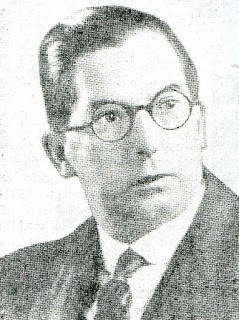Searches for our Roberts family go back as far as Oliver Roberts possibly born 1496 who paid a King's Subsidy in 1524. His second son was George Roberts possibly born 1526 and who died in 1568. His son Thomas Roberts was born in 1554 and died in 1578. He was followed by another Thomas born 1575? and died in 1664. His son Richard Roberts was possibly born in 1603 and died in 1638. All this information comes from the book called Some Memorials of the family of Roberts first researched and published by Samuel Roberts in 1862, then by his son Samuel in 1887, updated in 1924 by his son Samuel and lastly by Peter Roberts in 1971. These Samuels were all a separate line to the Jacobs from whom we are descended.
This is what I wrote on 21st October 2009.
Charles Augustus Roberts, the brother of my great Grandfather Vincent Littlewood Roberts, created a family tree in 1937 entitled "Genealogy of the family of Roberts of Sheffield". So the contents of this CD are not only the ancestors of my father, but also updates Charles' family tree with the descendants of Oliver Roberts of Wooldale born around 1496.For this, I am indebted to the book given to me by Sir Samuel Roberts of Cockley Clay called "Some Memorials of the Family of Roberts". This was originally written by his ancestor, Sir Samuel Roberts of Queens Tower in 1862 and distributed to family members including Grandfather Vincent. This was updated by the next two Sir Samuel Roberts and finally (and extensively) by Sir Peter Roberts in 1971. It was Sir Peter who, as he describes in the "Introduction Extended", made a special study of the area of Holmfirth and concludes "At Wooldale in the first half of the XV1 century lived two families; one, that of GEORGE ROBERTS, who died in 1568, and the other of OLIVER ROBERTS, who died in 1588. It is likely that both these families had a common ancestor in one OLIVER ROBERTS who was a farmer, and paid King's Subsidy on land worth £50 in 1524. I consider that it is beyond reasonable doubt that the said GEORGE ROBERTS is the progenitor of the present Roberts family".I also wish to give thanks to Chris Rathbone and Nigel Buchanan who have given me invaluable information.
Going back to Richard, his son was Abraham Roberts 1627 to 1683, and his son Samuel Roberts lived between 1649 and 1715. Then came three generations of Jacob Roberts, the first 1697 - 1728 as photo below. See posts of 2nd July 2008 and 27th August 2008.
He is followed by another Jacob 1726 - 1781.
Then a third Jacob Roberts 1764 to 1820. Again, see posts of 2nd July 2008 and 27th August 2008.
His son was Sidney Roberts - 1804 to 1859. He married Sarah Shearwood in 1832 and they had two sons, John and Augustus. Strange that I have never found a photograph.
But there is one of his son John Shearwood Roberts 1833 - 1915. See post of 17th November 2010.
Next came John's son Vincent Littlewood Roberts, see post 1st February 2023.
Then his son Stanley Boyd Roberts., a post dated 6th November 2009.
The third son of Stanley was my father Peter Richard Boyd Roberts. See post of 31st January 2012.
Then me and my son. That makes seventeen generations.












































.jpg)

.jpg)





